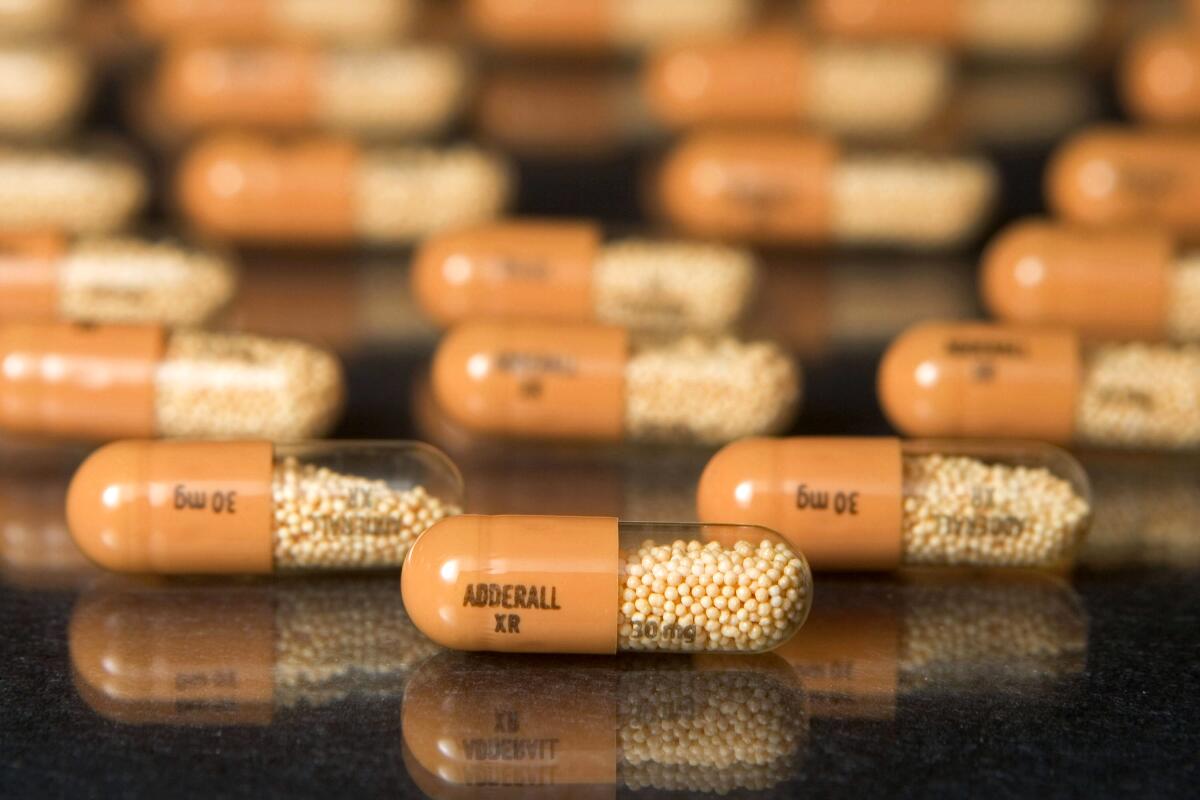California telehealth execs charged in ADHD prescription scheme amid nationwide med shortage

As many as 50,000 U.S. patients’ access to treatment for attention deficit hyperactivity disorder could be disrupted after two executives at Done, a California-based telehealth company, were indicted Thursday on healthcare fraud charges, federal officials said.
The Justice Department alleges that Chief Executive Ruthia He and company clinical President David Brody schemed to provide easy access to Adderall and other stimulants to patients who didn’t need them — then billed insurance companies for the medication.
Done Global wrote in a statement to The Times on Tuesday that the company “strongly disagrees with the criminal charges filed last week.”
CEO He and Brody are facing charges including conspiracy to distribute controlled substances, distribution of controlled substances, conspiracy to commit healthcare fraud and conspiracy to obstruct justice, court records show.
The charges mark the first time the Justice Department has prosecuted a digital health company in connection with distributing controlled substances through telemedicine.
Drs. Elisa Alvarado and Robert Siew face allegations that they negligently prescribed painkillers and other potentially dangerous narcotics to patients.
Done, based in San Francisco, operated on a subscription model in which individuals paid a monthly fee in exchange for online diagnosis of ADHD, as well as subsequent treatment and medication refills.
“Since our founding, Done Global has worked to make mental health care accessible for tens of thousands of Americans trapped in a spiraling national crisis,” the company said in a statement. “Done Global will continue to operate — and do everything in our power to ensure that tens of thousands of Americans that rely on us do not lose access to their mental health care. At the same time, we will continue to support our clinicians as they exercise independent clinical judgment, practice evidence-based medicine, and provide best-in-class health care.”
Prosecutors allege that He and Brody arranged for the prescription of more than 40 million pills, including Adderall, and generated more than $100 million in revenue since the beginning of the COVID-19 pandemic.
The charges coincide with an ongoing shortage of several stimulant medications commonly prescribed to treat ADHD, according to the U.S. Centers for Disease Control and Prevention. A disruption “involving this large telehealth company could impact as many as 30,000 to 50,000 patients ages 18 years and older across all 50 U.S. states,” the agency said.
“Instead of properly addressing medical needs, the defendants allegedly made millions of dollars by pushing addictive medications,” said Anne Milgram, administrator of the U.S. Drug Enforcement Administration. “Any diversion of Adderall and other prescription stimulant pills to persons who have no medical need only exacerbates this shortage and hurts any American with a legitimate medical need for these drugs.”
Adderall, Ozempic, albuterol, antibiotics and lifesaving cancer meds are in short supply. Here are answers to some of the most pressing questions about the situation.
During the pandemic, the federal government expanded telemedicine rules to allow practitioners to prescribe controlled substances to patients virtually. Proponents say the flexibility allowed patients to continue receiving medical care at a time when meeting in-person risked exposure to COVID-19. However, it also prompted concerns that web-based platforms made it too easy to get potentially addictive medications.
In some instances, prosecutors allege, medical providers paid by Done based their diagnoses and prescriptions on a short video or phone conversation and using “limited patient intake documents.” Other times, they prescribed without a video or phone call with the patient, according to the indictment.
Prosecutors also allege the company instituted an “auto-refill” policy that discouraged providers from following up with patients. They paid medical professionals solely based on the number of patients they wrote prescriptions for each month and refused to compensate them for follow-ups or other medical services provided after an initial consultation, the indictment said.
The company also allegedly collected insurance information from individuals and submitted it to pharmacies filling the prescriptions, causing the pharmacies to submit “fraudulent claims” to the insurance companies. Medicare, Medicaid and commercial insurers ultimately paid out roughly $14 million, prosecutors wrote in the indictment.
Scott Raffa needed to fill his rehab centers with patients. Prosecutors allege that he paid ‘body brokers’ to find patients whose insurance would cover the stay.
Officials allege Done was aware that some patients had overdosed and died on medication prescribed through its service. Done members described the company as a “straight-up pill mill” and a “drug-pushing scam to sell ADHD drugs and make a lot” of money, according to the indictment.
In May 2022, after mental health startup Cerebral received a grand jury subpoena indicating that it was being investigated, He and Brody allegedly became concerned they could be targeted in a similar probe. Prosecutors said they destroyed and concealed records and documents that could have been used by federal law enforcement investigators and began using encrypted messaging platforms instead of company email.
Brody and He have been taken into custody and are expected to appear in court Thursday, records show. If convicted, they could face up to 20 years in prison.
The CDC has advised patients who use telehealth services and are running low on their current prescriptions to schedule an appointment with a healthcare provider as soon as possible.
More to Read
Sign up for Essential California
The most important California stories and recommendations in your inbox every morning.
You may occasionally receive promotional content from the Los Angeles Times.













